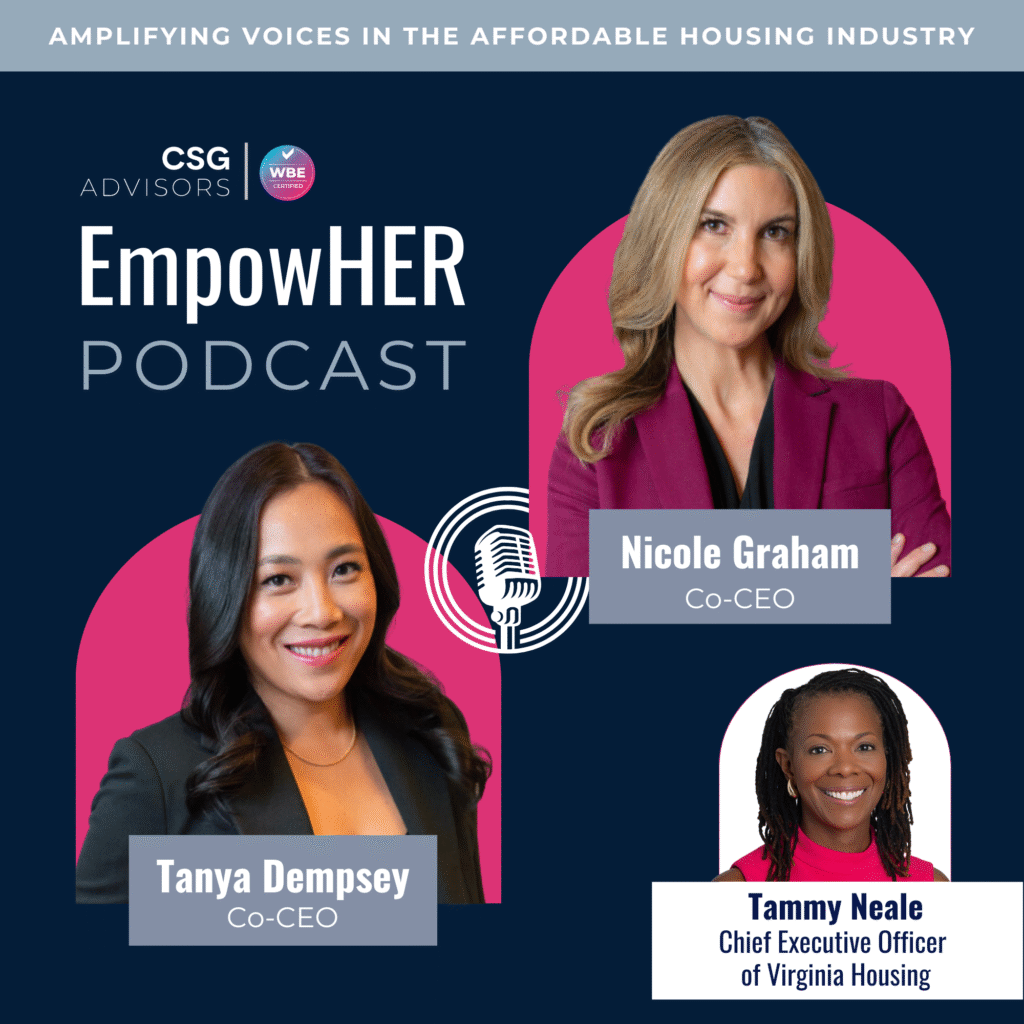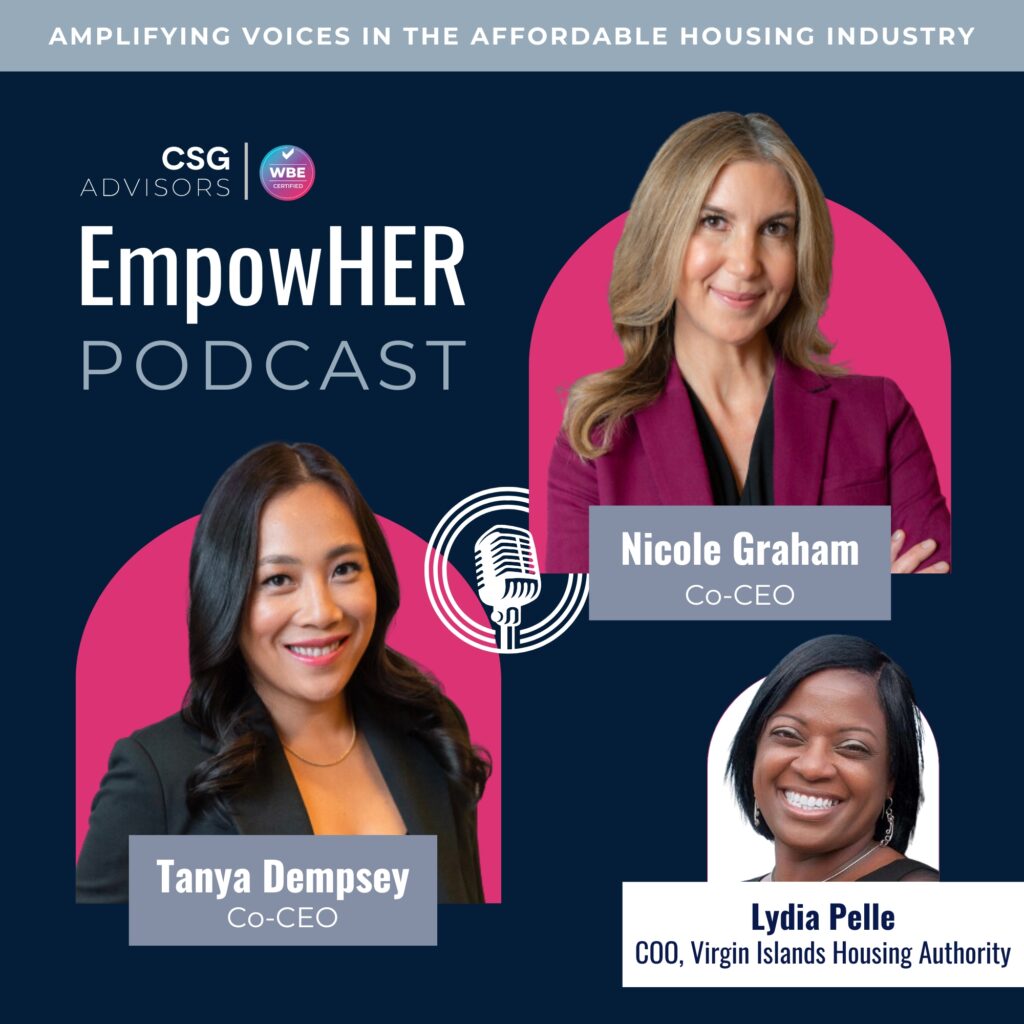
Volume Cap Insights from the 2024 NALHFA Conference
Our team had the pleasure of attending The National Association of Local Housing Finance Agencies’ (NALHFA 2024) Annual Conference this May in Las Vegas. We enjoyed connecting with CSG colleagues, clients, and affordable housing industry experts. One of our favorite aspects of industry conferences is learning from fellow thought leaders and sharing our insights with others. This conference, our aim was to promote discussion around the use and preservation of private activity volume caps as HFAs continue to reach record levels of bond issuance.
CSG Advisors Vice President, Patrick Johnson, led the Volume Cap Discussion, exploring methods for stretching volume cap. Below, we’ll discuss the takeaways from this session and share the strategies Patrick and the participants discussed.
Takeaways from the Volume Cap Discussion
“Volume Cap” refers to the federally mandated maximum amount of qualified Private Activity Bonds (PABs) state governments can issue in a given year. These caps are set annually based on population and limit the total volume of tax-exempt bonds issued to finance projects such as affordable housing.
Bond issuance has dramatically increased as interest rates have risen over the last few years. For many issuers, tax-exempt bond issuance has begun to drastically reduce their supply of PAB volume cap. This is a particularly concerning trend for HFAs trying to secure sufficient volume cap for both their single-family and multifamily programs in the future. Several HFAs expressed that the volume cap process in their state has become very competitive and doubted their ability to secure sufficient volume cap.
During the NALHFA Volume Cap Discussion, we explored strategies to address this growing problem and methods to stretch the volume cap.
Single Family Tools for Stretching Volume Cap
Blended Tax Exempt and Taxable Bonds
One strategy we discussed during this panel was blending tax-exempt and taxable bonds. Tax-exempt bonds may have lower, subsidized interest rates and may offer tax credits to issuers and holders, however, an issuer must be mindful of their state’s cap and the total funding needed to complete a project. Pairing taxable bonds with tax-exempt issuance can help preserve volume cap, enhance yield to holders, and provide sufficient funding for development. The main advantage of taxable bonds is that they are not limited by federal caps and can potentially offer higher spread to issuers.
Taxable bonds are currently very attractive to buyers, offering higher yields. and allowing more flexibility in bond economics. This strategy helps reduce the usage of volume cap, though it requires balancing between the overall cost of funds and volume cap savings. Blending issuance with taxable bonds is one of the best ways to conserve volume cap for local HFAs. However, this comes with the trade-off of increasing the cost of funds, as taxable debt carries higher interest rates than tax-exempt debt.
Loan Recycling
Loan recycling involves using repayments or prepayments from existing loans, initially funded by tax-exempt single-family mortgage bonds, to finance new loans. This approach can be particularly effective in fast prepayment and fast origination environments.
Single-family bond resolutions typically allow HFAs to recycle loan collections into new loans, provided they meet current debt service and other requirements. Federal tax law only permits this recycling for the first 10 years from the issue date of the original mortgage bonds.
Replacement Refunding
Replacement refunding is a strategy where HFAs retire or refinance previously issued debt with new bonds. The proceeds from the new bonds, known as refunding bonds, are used to pay off the principal, interest, and any redemption premiums on the prior bonds or refunded bonds.
This strategy can be unpredictable in reducing volume cap and may face challenges such as low prepayments when production is high. It is also more difficult for HFAs that frequently redeem bonds and may not be immediately useful for those without outstanding bonds. However, under the right circumstances, replacement refunding can be a helpful tool for managing debt and optimizing financial resources.
Convertible Option Bonds
Convertible Option Bonds (COBs) are long-term bonds, typically around 30 years, with a mandatory put and remarketing option after one year. The COB proceeds are escrowed for the initial one-year period and invested at a rate higher than the initial COB rate. After this period, HFAs can tender COBs at par for remarketing or redemption.
COBs are currently attractive due to high short-term investment rates and minimal negative arbitrage. They offer a strategy for conserving expiring volume cap, providing flexibility through refunding or remarketing. Refunding simplifies tax plan treatments while remarketing can offer benefits based on the bond redemption strategy. This dual-option approach allows HFAs to tailor their financial strategies to current market conditions and regulatory requirements.
Building Stronger Communities Together
In preparing for this session, it was clear that many HFAs face volume cap scarcity, but each HFA’s volume cap situation is unique. If you’re struggling to secure funding, CSG Advisors can support you. We help public agencies leverage financing, so that we can make affordable housing and communities a reality for all.
Contact us today to learn more.
Contributor: Patrick Johnson
Recent Podcasts
CSG Advisors Incorporated is a national, full service, independent financial advisor that assists public finance clients in the design, financing and implementation of affordable housing, urban redevelopment and economic development initiatives. Over the past 20 years, CSG has advised on more housing bonds than any other municipal advisor, as reported by Thompson Reuters. CSG Advisors is entirely employee-owned and independent. Employee owners include minorities and women.
Don't miss important news.
For the latest news and tips in public financing, sign up to be part of our mailing list.
"*" indicates required fields
We respect your privacy and protect it. Learn more by viewing our Privacy Policy.
And follow us on social:


